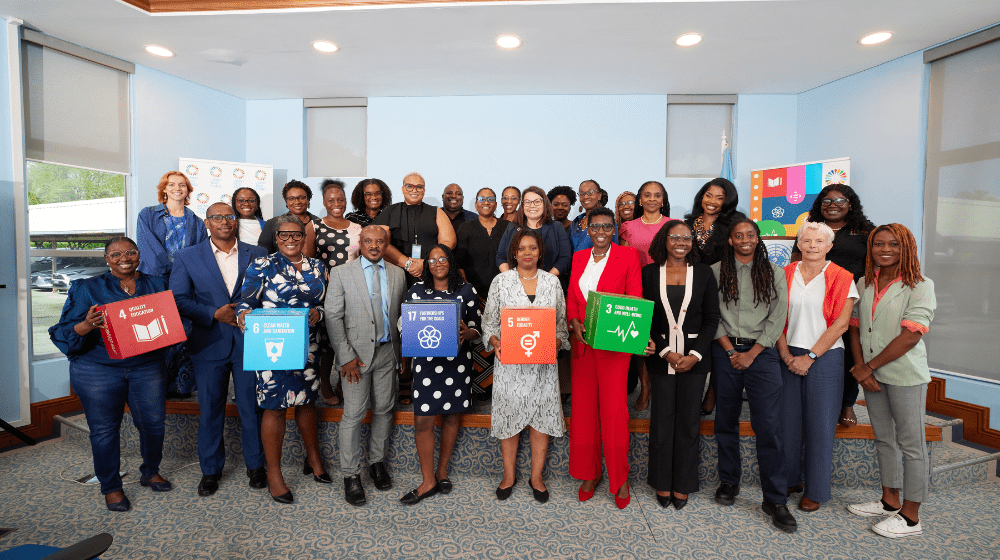The Governments of Barbados and Montserrat are better equipped to collect and analyze data, to foster gender equality and advance inclusive health and social development policies, thanks to a recently concluded Joint SDG Fund Programme for Integrated Population Data and Policy Solutions. This marks a significant step forward in sustainable development for both countries.
The two-year programme was implemented under the leadership of UNFPA (the United Nations Population Fund), in collaboration with UN Women (the United Nations Entity for Gender Equality and the Empowerment of Women), and in partnership with government stakeholders and civil society. With focus on improving access to real-time, disaggregated demographic data, it sought to enable policymakers to create evidence-based policies and programmes in support of the most vulnerable populations. The initiative addressed key priorities under Sustainable Development Goals (SDGs) 3 (Good Health and Well-being) and 5 (Gender Equality).
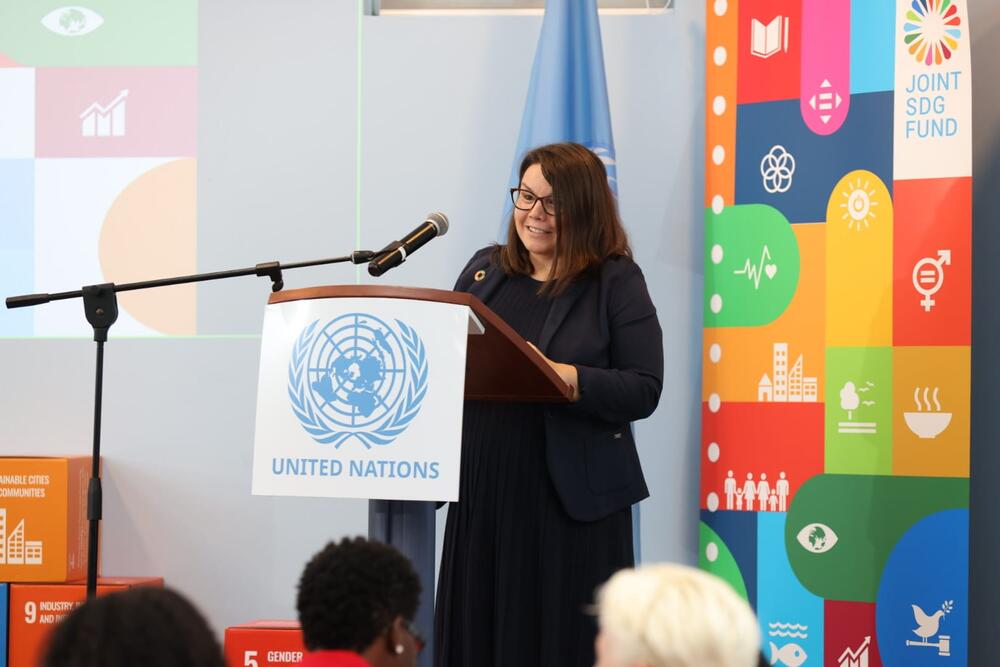
Addressing a hybrid Strategic Dialogue and Close-Out Meeting, held at UN House in Barbados, Jenny Karlsen, Deputy Director, UNFPA Sub-Regional Office for the Caribbean, pledged continued support to the Governments of Barbados and Montserrat to build on the Project’s achievements. She commended national partners for their champion role in its execution: “This programme stands as a testament to your vision and commitment to your national priorities, and what can be achieved when we work together with a shared purpose” she said.
Based on the programme’s execution in Montserrat, significant strides have been made in advancing sexual and reproductive health, population policy and data systems. A draft Sexual and Reproductive Health Policy, supported by UNFPA, is awaiting Cabinet submission, alongside a Population Situation Analysis and National Population Policy, currently under public review. A National Civil Registration and Vital Statistics (CRVS) System Study and Action Plan is also poised for Cabinet review. Technical guidance and training on the measurement of SDG 5 indicators were provided to the Montserrat Statistics Department. Data collection on this indicator was successfully implemented through their national census, which concluded in November 2023.
An analysis of the 2023 Census data on unpaid domestic and care work was also conducted, and steps taken to strengthen national data systems through enhanced disaggregation by sex, age, and disability, integration of GIS and geospatial tools, and targeted training to monitor SDG indicators pertaining to Goals 3 and 5.
Meanwhile, in Barbados, UNFPA supported completion of a Baseline Study on Priority Sustainable Development Goals (SDGs) Indicators for Barbados, with capacity building provided in the National Transfer Accounts Model to help assess the economic impacts of demographic shifts. For the first time Barbados has a national measurement of the time spent by women and men on unpaid domestic and care work. UN Women supported the Barbados Statistical Service with the capture and analysis of the data on SDG 5 indicators, providing computer tablets, and facilitating the engagement of six enumerators/field officers and preparation of the final report.
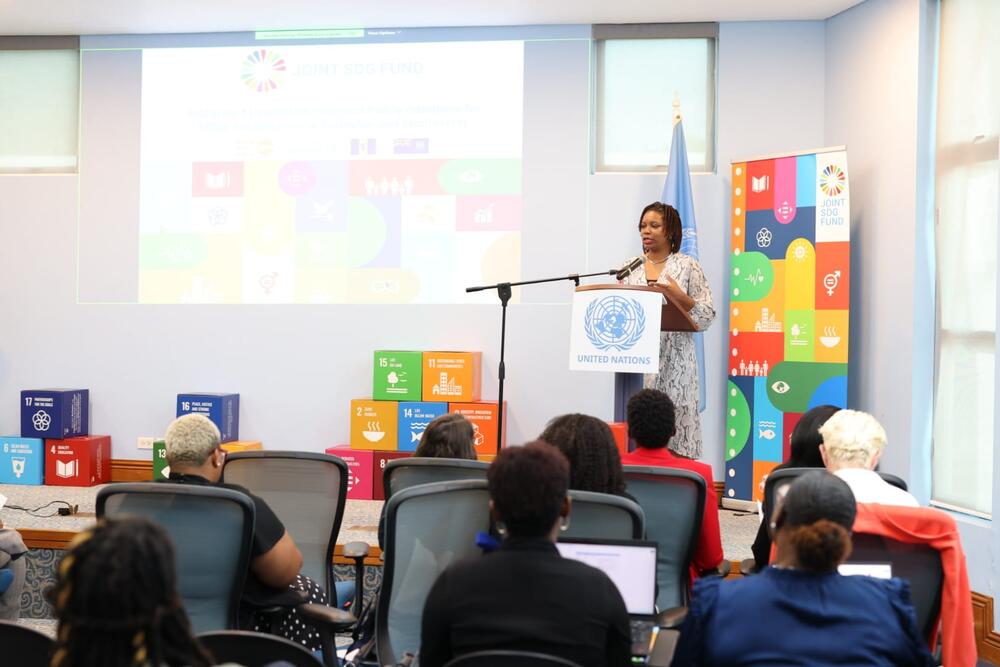
Isiuwa Iyahen, Deputy Representative, UN Women Multi-Country Office (MCO) - Caribbean, highlighted the vital intersection of population dynamics and the care economy during her remarks. She noted the concern with declining fertility rates, but emphasised that policy solutions to encourage family formation do not infringe on the sexual and reproductive rights of women: “Let’s look at the mix of policy solutions that will encourage you to participate in the paid care economy but meet your obligations to your families.”
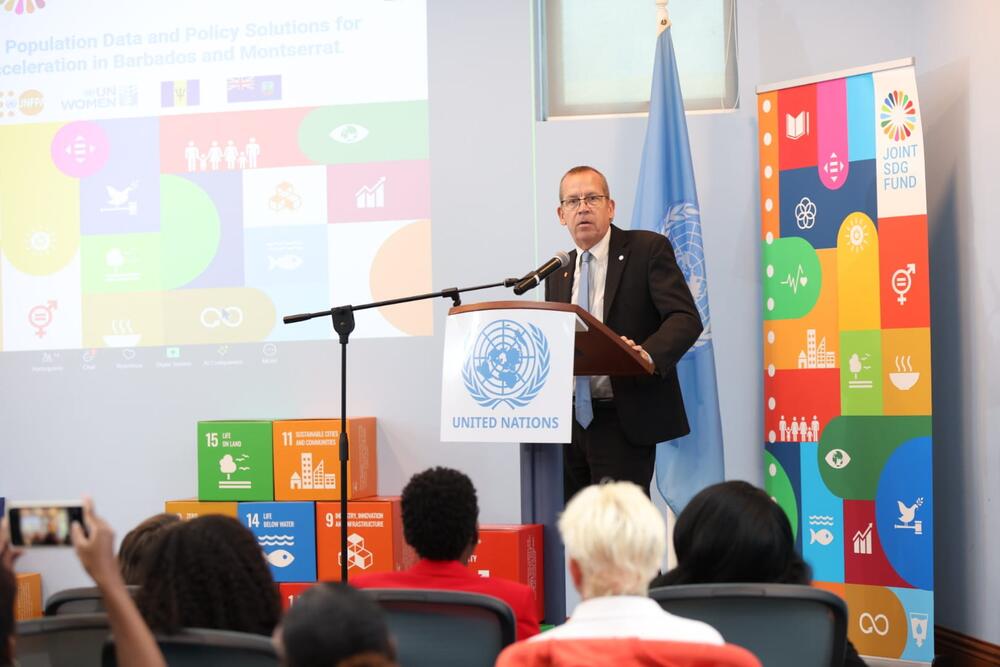
In addressing the forum, Simon Springett, UN Resident Coordinator for Barbados and the Eastern Caribbean reflected on the programme’s completion as a stepping stone for future progress and building more resilient, prosperous and equitable societies. He maintained: “We must sustain this momentum and continue to prioritize data-driven solutions, gender-sensitive policies, and inclusive approaches to development.”
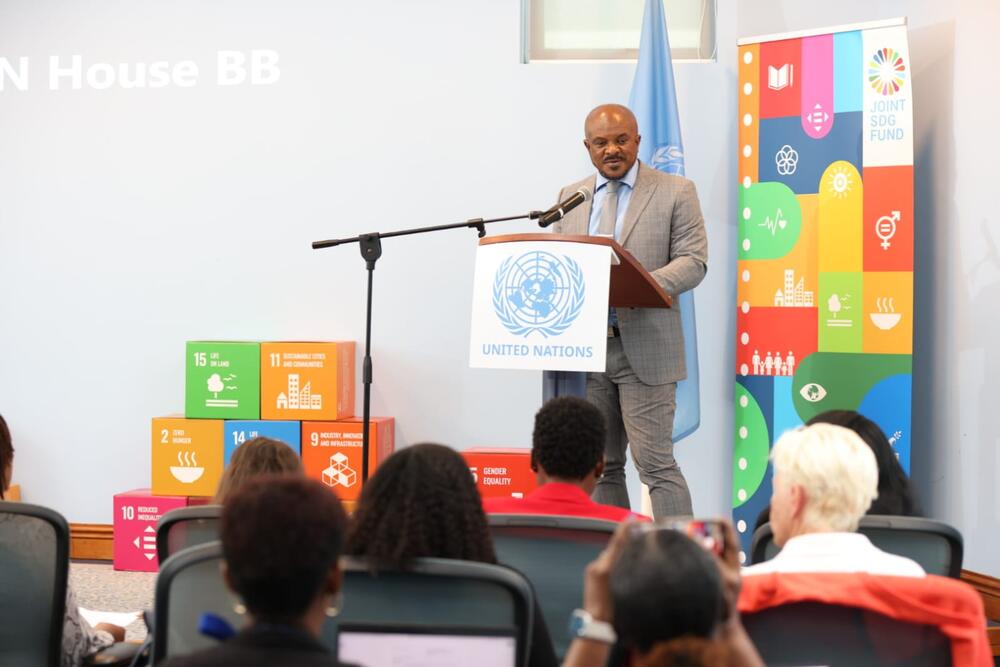
The Project also came in for high praise from national partners attending the Close-out in person at UN House. Patrick McCaskie, Permanent Secretary, Economic Affairs and Investment, Ministry of Economic Affairs and Investment in Barbados underlined the importance of celebrating the programme’s successes, while assessing challenges and lessons learned. He also reaffirmed his government’s dedication to inclusive development: “The Government of Barbados is fully committed to the continued pursuance of programmes and policies that are fully inclusive, people-centered, and resilient—economically, socially, and environmentally—in a way that leaves no one behind.”
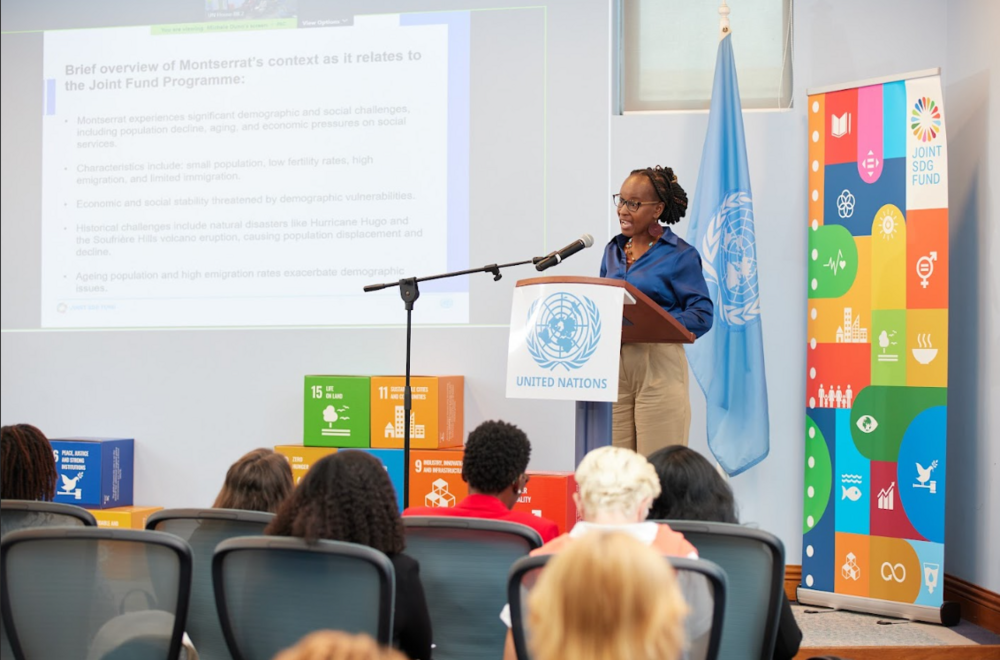
Meanwhile, Teresena Fergus, Director of Social Services in Montserrat, underscored the programme’s role in advancing rights-based population policies and enhancing national capacities for data-driven decision-making. “Let us celebrate our progress, examine the challenges, and set a robust course for sustaining the strides we have made together,” she encouraged.
The Joint Programme is expected to have continued impact through the frameworks and tools developed, which promise to drive inclusive growth and equitable development on the road to 2030. Supported by UNFPA and UN Women’s 2022-2026 Strategic Plans, and the continued partnership of the UN Development System, the results achieved under this initiative will serve as a model for sustainable development strategies across the region.

